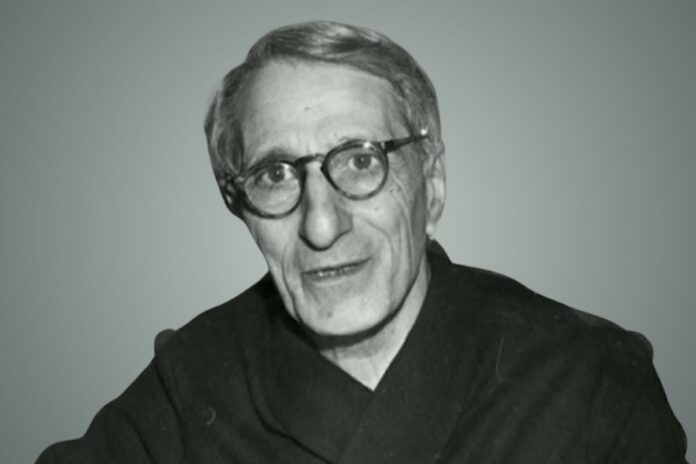Luigi Sturzo: (26 November 1871 – 8 August 1959) was an influential Italian Catholic priest and politician, widely recognized for his role as a Christian socialist and as one of the founding figures of Christian democracy. He established the Luigi Sturzo Institute in 1951. Sturzo played a key role in founding the Italian People’s Party (PPI) in 1919. However, with the rise of Italian fascism, he was forced into exile in 1924. Despite this, he remained an important figure in the formation of the Christian Democracy party in 1943, though he was never an official member. During his years in exile, first in London and later in New York City, Sturzo published over 400 articles critical of fascism, which were later compiled posthumously as Miscellanea Londinese. His cause for canonization was initiated on 23 March 2002, and he is now honored as a Servant of God.
Introduction
Luigi Sturzo, a name synonymous with Italian political reform, was an essential figure in the development of modern Italy. A Catholic priest, academic, and politician, Sturzo played a crucial role in the shaping of Italy’s social and political policies during the early 20th century. Moreover, His contributions continue to resonate in Italy’s political discourse today.
This article delves into Sturzo’s life, from his early years as a priest to his leadership in Italian politics, examining his political philosophy, challenges, and his lasting legacy. Whether you’re a history buff or curious about Italy’s political evolution, you’ll find Sturzo’s story both fascinating and inspiring.
The Early Life and Formation of Luigi Sturzo
Early Years and Education
Born in 1871 in Caltagirone, Sicily, Luigi Sturzo was initially destined for a life in the clergy. As a young man, he studied theology and philosophy at the University of Catania. It was during these formative years that Sturzo began to grapple with the challenges facing Italy—especially in relation to the Catholic Church’s role in politics and society.
Sturzo’s deep faith was central to his political ideology. However, unlike many of his contemporaries, he believed that the Church should not control the state but instead should offer moral guidance. This perspective shaped his later work and made him an influential figure in both religious and political circles.
Founding the Partito Popolare Italiano
In 1919, Luigi Sturzo founded the Partito Popolare Italiano (PPI), Italy’s first Catholic political party. The party aimed to represent the interests of Italian Catholics while promoting democratic values. Sturzo’s leadership in creating the PPI was a revolutionary move at the time, as Italy’s political landscape had been dominated by secular parties. His vision for the party was to bridge the gap between Catholicism and modern democratic ideals.
The PPI quickly gained traction, drawing support from those who were disillusioned with the existing political structure. Sturzo’s party was an attempt to break free from the traditional political factions that had left Italy fragmented and unstable.
Sturzo’s Political Philosophy and Influence
Christian Democracy and Social Reform
Sturzo’s political ideology centered around Christian democracy—a philosophy that sought to integrate Catholic social teachings with democratic governance. His vision was to create a society where individual freedom was balanced with social responsibility, ensuring that the weakest members of society were not left behind.
A central tenet of Sturzo’s belief was social justice. He advocated for the protection of workers’ rights, support for education, and the strengthening of Italy’s economic infrastructure. Sturzo’s commitment to reforming Italy’s political and social systems made him one of the most important figures in early 20th-century Italy.
Struggles with Fascism and Exile
Sturzo’s opposition to the rise of fascism under Benito Mussolini proved to be a turning point in his life. As Mussolini’s regime grew more powerful, Sturzo became increasingly vocal in his criticism of authoritarian rule. In 1924, the fascists forced him into exile, marking the end of his direct influence in Italian politics for a time.
During his exile in France and the United States, Sturzo continued to write and advocate for his vision of a democratic Italy. His political work from abroad kept him in contact with Italian intellectuals and politicians, despite the oppressive regime at home.
Luigi Sturzo’s Legacy and Influence on Modern Italy
A Lasting Impact on Italian Politics
Luigi Sturzo’s ideas about democracy, justice, and Christian values laid the groundwork for what would later become Italy’s Christian Democracy Party (DC), a major political force in Italy after World War II. His commitment to democratic principles and social justice made him an enduring figure in Italian political thought.
Sturzo’s influence extended beyond Italy’s borders as well. His work provided a model for Christian democratic movements across Europe, and his writings on political reform continue to be referenced in discussions of modern political philosophy.
Recognition and Honor
Although Luigi Sturzo’s direct political career ended in exile, his contributions to Italy’s democratic development were eventually recognized. In 1950, the Italian government invited him back to Italy, and he spent his final years in Rome, where he continued to contribute to political thought until his death in 1959.
FAQ
Who was Luigi Sturzo?
Luigi Sturzo was an Italian Catholic priest, politician, and social reformer. He founded the Partito Popolare Italiano (PPI) and played a significant role in shaping Italian politics in the early 20th century.
What was Sturzo’s role in Christian democracy?
Sturzo was a pioneer of Christian democracy, advocating for a political system that balanced Christian values with democratic governance. His work influenced the development of Italy’s Christian Democracy Party after World War II.
Why was Luigi Sturzo exiled?
Sturzo was exiled by the fascist regime of Benito Mussolini due to his outspoken opposition to fascism. His exile lasted for many years, but he continued to influence political thought from abroad.
Final Thoughts
Luigi Sturzo’s life was marked by passion, resilience, and an unwavering commitment to democratic ideals. His fight for social justice, democracy, and Christian values has left an indelible mark on Italian politics. As Italy continues to evolve, Sturzo’s contributions remain a vital part of its political and social fabric.
If you found Sturzo’s story inspiring, be sure to explore more about Italy’s influential political figures and their legacies.




